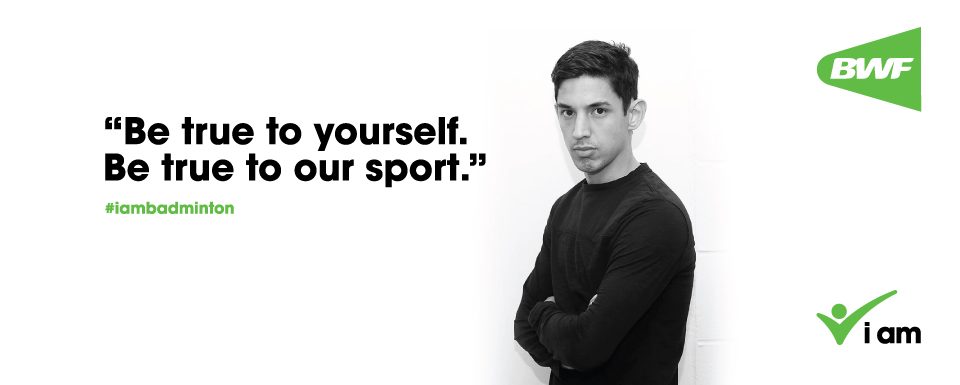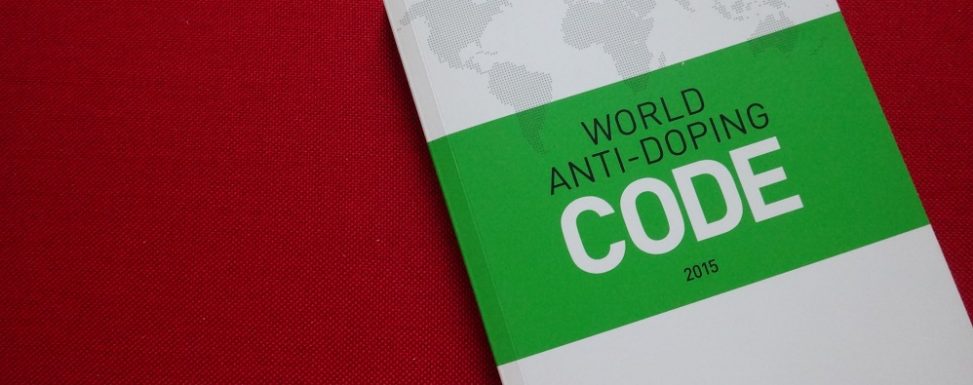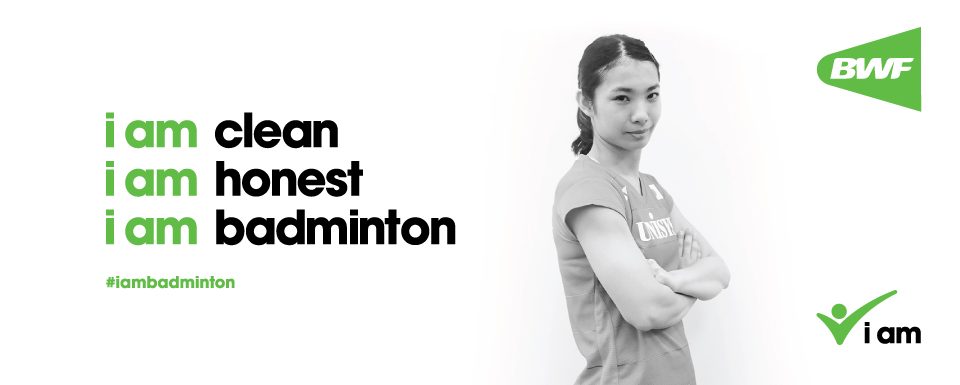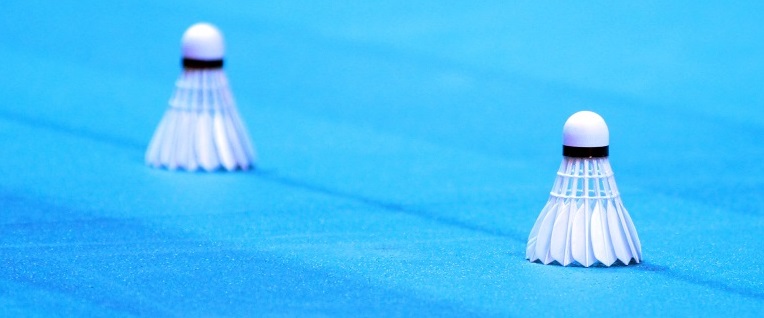Anti-Doping Program
Every athlete has the right to compete in “clean sport”. Doping is contrary to the spirit of sport. Everyone has a responsibility under the BWF Anti-Doping Regulations (download from above) to keep badminton clean including:
- Players (badminton / para-badminton)
- Support personnel – coaches, trainers, managers, team doctors
- Administrators of the sport
- BWF Members, and their clubs and associations
- Badminton World Federation
BWF’s “i am badminton” integrity programme involves education, testing, investigations and results management. Athletes are at the centre of the programme because we must protect their rights to compete in clean and fair sport.
Athletes – Personal Responsibility
Athletes also have many responsibilities in sport. They are personally responsible for:
- Knowing about the BWF Anti-Doping Regulations and following them.
- Understanding the consequences of failing to follow the BWF Anti-Doping Regulations.
- Everything they eat, drink and use (such as medications).
- Telling their doctor that they are an international level athlete. The doctor will check to see if medication contains a Prohibited Substance before prescribing.
- Reporting incidents that could be doping in sport.
Prohibited Substances
- There are many substances which are prohibited for athletes to use
- These substances are banned because they give athletes a performance advantage.
- The World Anti-Doping Agency (WADA) publishes a list of Prohibited Substances. The list is updated every year and comes into effect 1 January each year.
- Some Prohibited Substances can be harmful to your health.
- Prohibited Substance can be found in some medications.
Therapeutic Use Exemptions (TUE’s)
- Some medicines contain prohibited substances.
- Even some creams you put on your skin may contain prohibited substances.
- Tell your doctor that you are an international level athlete.
- Occasionally, an athlete may need to take medicines containing a prohibited substance. You must get permission to use the medication BEFORE you use this (unless it is an emergency).
- If you need medicines which contain Prohibited substances, your doctor must complete a TUE Form (Therapeutic Use Exemption Form).
- The TUE form can be downloaded from the BWF website.
- Send the completed TUE form to the BWF at least 21 days before international competition.
Dietary Supplements
- Some athletes use dietary supplements to help build muscle and strength – for example – protein supplements.
- Some dietary supplements may not be safe to use. There is a risk that supplements could contain prohibited substances.
- Get advice on supplements from your National Anti-doping Agency.
Testing
BWF and National Anti-Doping Organisations have testing programmes.
- Testing can take place anywhere / anytime.
- Testing can take place at competitions or between competitions – at your training venue or at your residence.
- Urine and blood may be taken as samples for analysis.
- Selection for testing can be random or target particular athletes.
- Top world and national players may be asked to provide “Whereabouts information” – where they train, compete, live for every day of the year. This is so they can be regularly tested.
Anti-Doping Rule Violation
Examples of an anti-doping rule violations are:
- If a prohibited substance is found in your urine or blood sample.
- If an athlete refuses to give a urine or blood sample to a Doping Control Officer.
- If someone tampers with a urine or blood sample.
- If a prohibited substance is found in an athletes’ possession.
- If you give prohibited substances to another player to take or you help someone to take part in doping.
- If found guilty of any one of these, it could mean a ban for 4 years from all sport.
More Information
- Your coach / your badminton association
- Your National Anti-Doping Organisation
- World Anti-doping Agency
- Andy Hines-Randle – Head of Integrity




























